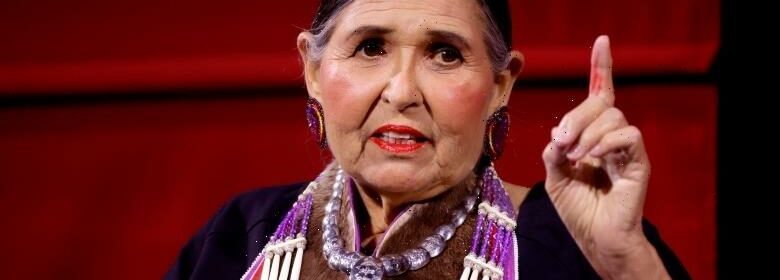Sacheen Littlefeather’s Sisters Say Claims of Native American Ancestry Were Fraudulent — Report

After she took the stage in Marlon Brando’s place at the 1973 Academy Awards, Sacheen Littlefeather became known as one of the entertainment industry’s most prominent activists for Native Americans and other Indigenous people. Rather than accept Brando’s best actor Oscar, which he had just won for his performance in “The Godfather,” Littlefeather, who died earlier this month, declined the awards and used her time on stage to criticize Hollywood’s on and offscreen treatment of Native Americans. The move prompted some outrage, leading the Academy to issue a belated apology to Littlefeather earlier this year.
When she took the stage, her first words were: “Hello. My name is Sacheen Littlefeather. I’m Apache.” But a new report alleges that might not have been true.
In a bombshell story by Native American journalist Jacqueline Keeler for the San Francisco Chronicle, Littlefeather’s sisters Rosalind Cruz and Trudy Orlandi claim that the activist wasn’t actually Native American.
“It’s a lie,” Orlandi said of Littlefeather’s claimed heritage. “My father was who he was. His family came from Mexico. And my dad was born in Oxnard.”
Cruz added. “It’s disgusting to the heritage of the tribal people. And it’s just… insulting to my parents.”
Both sisters personally identify as Spanish, and accuse Littlefeather of manufacturing her Indigenous backstory to advance her entertainment career. Following her speech at the 1973 Oscars, she played Native American characters in several films including “The Trial of Billy Jack,” “Johnny Firecloud,” and “Winterhawk.” She remained a visible activist until her death in October 2022.
“I mean, you’re not gonna be a Mexican American princess,” Orlandi said. “You’re gonna be an American Indian princess. It was more prestigious to be an American Indian than it was to be Hispanic in her mind.”
Littlefeather’s sisters allege that she lied about much more than just her ancestry. Throughout her life, she claimed that her father was a violent alcoholic who abused her mother, a claim that both sisters deny. They both say that many of the stories she told from her childhood actually happened to their father during his childhood, and she passed them off as if they had happened to her.
“My father’s father, George, he was the alcoholic. My dad never drank,” Orlandi said. “My dad never smoked. And you know, she also blasted him and said my father was mentally ill. My father was not mentally ill.”
Littlefeather also claimed to have been present at the Occupation of Alcatraz, a 19-month protest at the infamous prison that began in 1969. During the protest, Indigenous activists occupied the island in an attempt to simulate what they felt white colonizers had done to their land in America. But LaNada Warjack, one of the student activists who arranged the protest, denied that Littlefeather was ever there.
“We never really knew her until Oscar night,” Warjack said.
The accusations come in the middle of an overwhelmingly positive reappraisal of Littlefeather’s legacy, with the Academy recently holding an event to honor her and issuing an apology that claimed Littlefeather “made a powerful statement that continues to remind us of the necessity of respect and the importance of human dignity.”
IndieWire has reached out to the Academy of Motion Picture Arts and Sciences for comment.
Source: Read Full Article